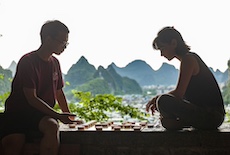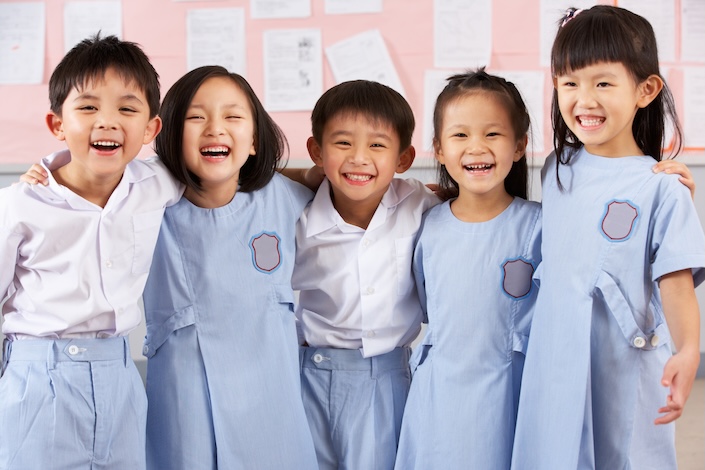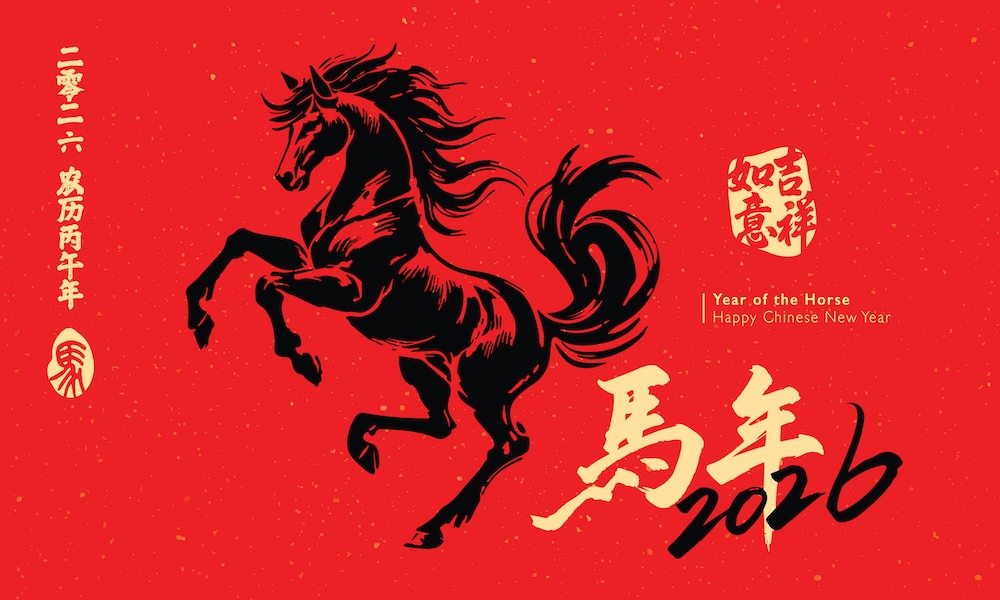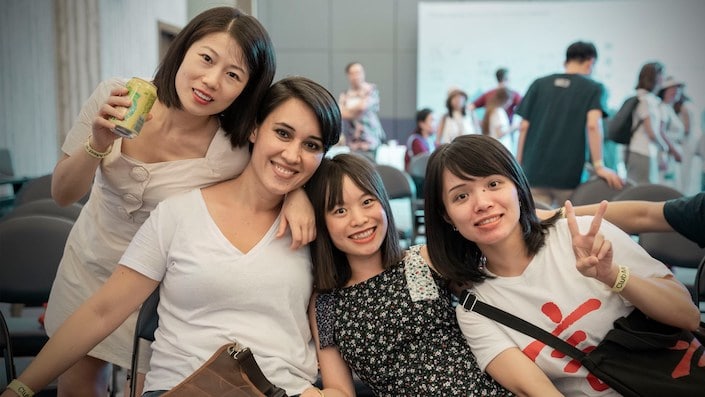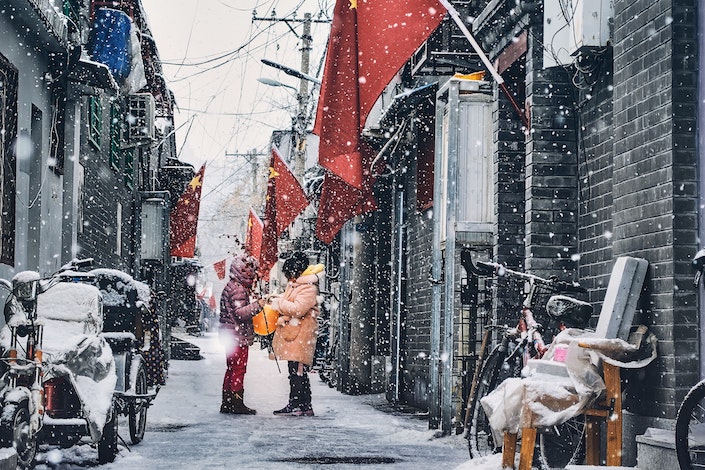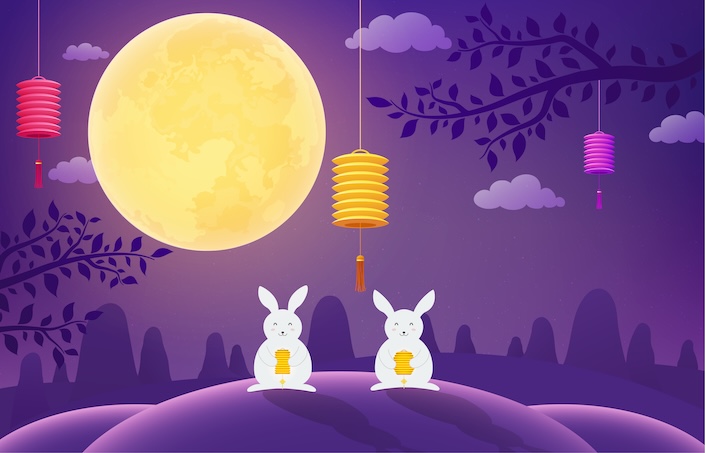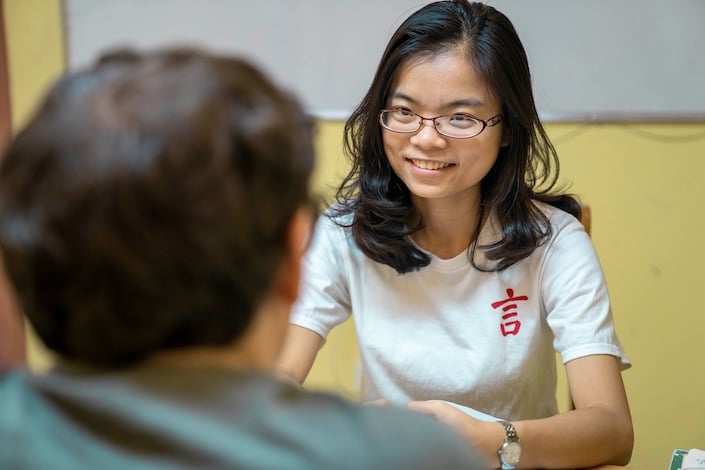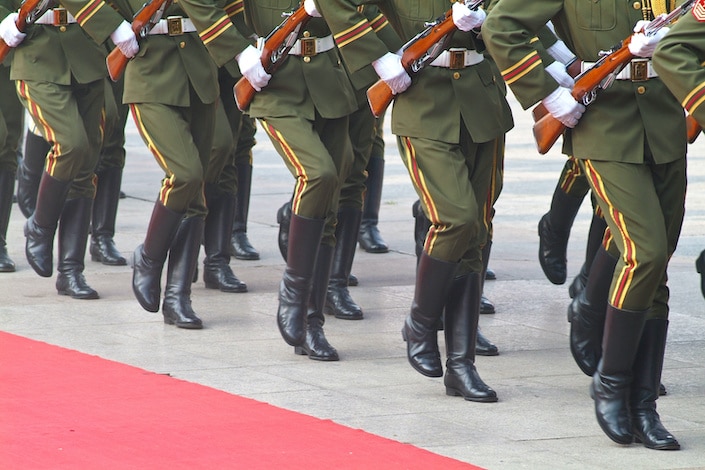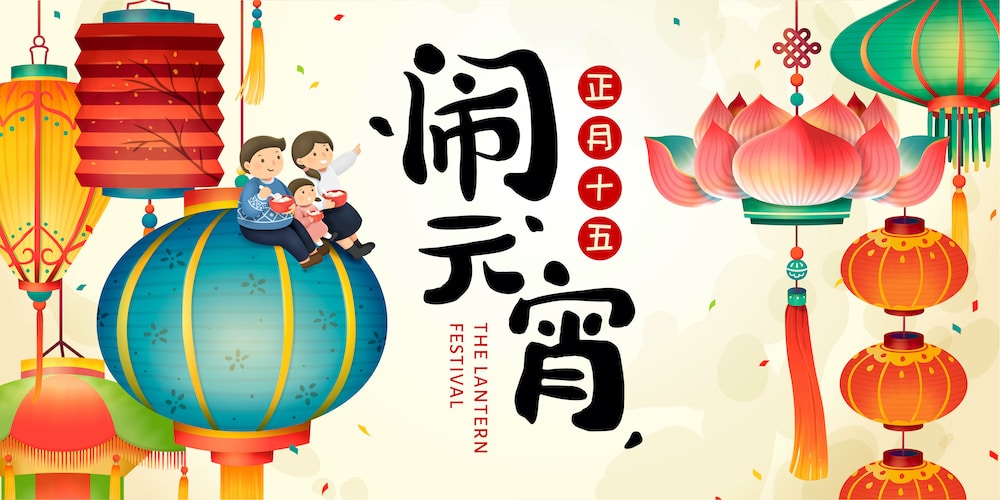What is the Chinese summer solstice (夏至) and how is it celebrated?
 Tania Yeromiyan
Tania YeromiyanLearn Chinese in China or on Zoom and gain fluency in Chinese!
Join CLI and learn Chinese with your personal team of Mandarin teachers online or in person at the CLI Center in Guilin, China.
How much do you know about the Chinese summer solstice holiday? In this article, we explore Chinese summer solstice traditions and common celebratory customs in China today.
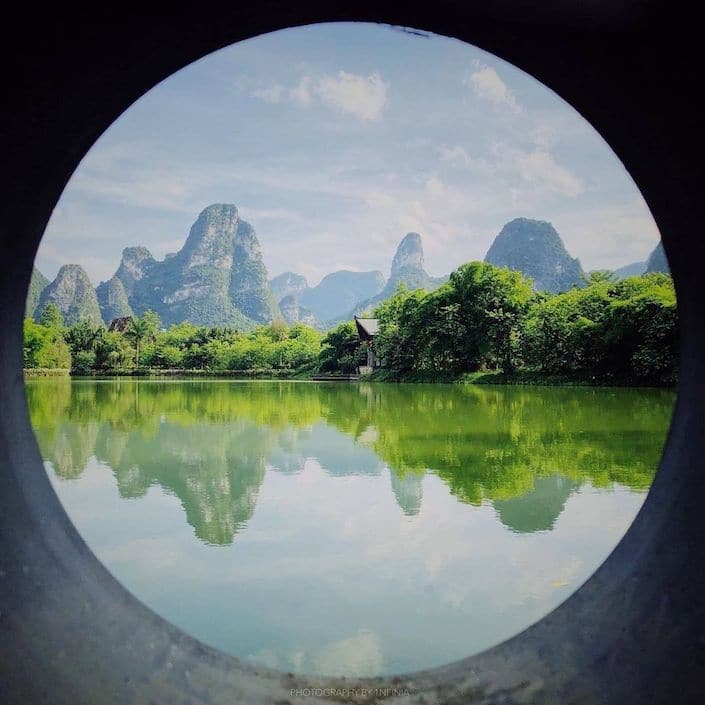
What is the Chinese summer solstice?
The Chinese summer solstice (夏至 Xiàzhì) refers to both an astronomical event and a traditional festival that celebrates the longest day of the year in China.
In astronomical terms, the summer solstice marks the beginning of summer and the longest day in the Northern Hemisphere. It also refers to a specific period of time starting when the sun reaches the celestial longitude of 90° and ends when it reaches the longitude of 105°, which roughly covers a 14-day time span.

The summer solstice, which falls on a slightly different date each year, marks the longest day in the Northern Hemisphere.
To further understand this concept, we need to take a look at the Chinese calendar and its solar terms:
The 24 Solar Terms
Each solar year (岁 suì) on the Chinese calendar is split into “solar terms” (节气 jiéqì) which mark astronomical events such as equinoxes, solstices and other natural occurrences. Each solar term covers a set time period of time which today is usually around 15 days.
During the Shang dynasty (1,600 BCE - 1,046 BCE), the solar terms originally only consisted of four events, with the summer solstice being one of them (alongside the winter solstice and the spring and autumn equinox).
But during the Han dynasty (206 BCE - 220 CE), the solar year was further split into 24 solar terms, which included other natural occurrences such as the start of autumn (立秋 lìqiū), the period marking the descent of frost (霜降 shuāngjiàng), and the period marking the coldest times during the winter (大寒 dàhán). Currently, the summer solstice is the 10th solar term, while the winter solstice (冬至 Dōngzhì) is the 22nd.

Since ancient times, the Chinese calendar has marked the passage of time using a system of 24 solar terms.
A small misconception
Apart from being the longest day of the year, many people assume that the summer solstice is also the hottest day of the year, but this is not true. Instead, the summer solstice traditionally symbolizes upcoming hot weather. The hottest day of the year is usually predicted to be 23 days after the solstice, according to Chinese beliefs.
In China, the summer solstice is also largely associated with humidity and monsoon weather which includes thunder and very heavy rain, which sometimes causes major floods, especially in southern China.
The summer solstice: a global perspective
The summer solstice, celebrated worldwide, marks the longest day of the year in the northern hemisphere. In the southern hemisphere, the "summer solstice" is in fact experienced as the winter solstice, the shortest day of the year.
In many northern hemisphere cultures, the summer solstice is associated with various traditions and rituals. For example, in Sweden, Midsummer is a major holiday featuring dancing, singing, and feasting. In the United Kingdom, people gather at Stonehenge to witness the sunrise.
Native American tribes also hold ceremonies, recognizing the solstice as a time of renewal and gratitude. These global celebrations highlight the shared human connection to this significant astronomical event.
In China, the summer solstice is celebrated with its own unique customs and traditions, deeply rooted in the country's agricultural history and cultural heritage. The solstice marks an important time in the Chinese calendar, signaling the beginning of summer and the height of yang (阳 yáng) energy, a concept in traditional Chinese philosophy.
Chinese celebrations often include various rituals and festivities, reflecting the country's rich cultural diversity and historical significance of this celestial event.
How was the Chinese summer solstice traditionally celebrated?
In ancient times, the summer solstice was often referred to as the "Summer Festival" (夏节 Xiàjié) and "Summer Solstice Festival” (夏至节 Xiàzhìjié). Although some customs remain the same today (including those regarding food, which we will explore later), most ancient Chinese summer solstice celebrations were different from those of today.
Harvest celebrations and rituals
In ancient China, the summer solstice coincided with the harvest season for wheat, and so it was customary to engage in “earth worship” rituals during this special time.
Ancient rituals during the summer solstice included offering sacrifices, engaging in prayer in order to show gratitude for the harvest, and asking for a good and productive year free from natural disasters. As a result, the summer solstice became a holiday which included ancestral worship ceremonies.

In ancient China, the summer solstice coincided with the harvest season.
Family time
Before the Qing dynasty, the summer solstice was such a special event that it was treated like a public holiday. Throughout various dynasties, it was common practice to provide a day off to officials and workers across the country so that they could spend the holiday with their families. In fact, according to some records, officials during the Song dynasty had three days off!
Nowadays, the summer solstice is not considered one of China’s public holidays, so it's business as usual in China on this day.

The summer solstice isn’t a public holiday today, but people in Song dynasty China got three days off to observe the festival with family.
How is the Chinese summer solstice celebrated today?
The summer solstice is not really “celebrated” in modern Chinese society, and even if it is, it is usually low-key and done so in a way specific to the region in question. For example, in some provinces such as Zhejiang, you might find dragon boat racing going on during the summer solstice.
Apart from such traditional activities, there are also a wide variety of foods that are traditionally consumed on the summer solstice (and to some extent in summer in general). These days, the main focus of this festival is largely on food and health.
View this post on Instagram
Summer solstice foods
Achieving a balance between yin and yang is considered important in traditional Chinese culture. Recall that yang is used to refer to bright, active energy, while yin refers to dark, passive energy.
According to traditional Chinese medicine (TCM), the summer solstice has the strongest yang energy of the year. Therefore, during the summer solstice, it is important to protect one’s yin and yang balance from being destabilized by too much yang.
As a result, a lot of emphasis is placed on foods that can help reduce the amount of internal heat (解暑 jiěshǔ) in the body to help provide protection against the hot weather.
Each region has its own customs. Here are some of the main dishes consumed during this time:
Noodles
There is a popular saying throughout China: “冬至饺子夏至面” (dōngzhì jiǎozi xiàzhì miàn), which can be translated as, “winter solstice dumplings and summer solstice noodles.”
夏至面 (xiàzhì miàn; summer solstice noodles) is a collective reference to the huge variety of noodle dishes in Chinese cuisine. Although any type of noodle dish can be eaten during the solstice, cold sesame oil noodles (麻油凉拌面 máyóu liángbànmiàn) are especially popular, and usually accompanied by other cold dishes such as cold Chinese cabbage salad (凉拌大白菜 liángbàn dàbáicài) and smacked cucumber (拍黄瓜 pāi huángguā).
Not only are they delicious, but since they are cold, they are believed to help you keep your appetite despite the scorching summer heat.

Cold noodle dishes are especially popular during the Chinese summer solstice.
Pea cake
Eating pea cake (豌豆糕 wāndòu gāo) is a custom mainly found in Nanjing. During the summer months, you will usually find a lot of family elders making homemade pea cakes to give to their younger family members. Pea cakes have a subtle sweet taste that offers a refreshing and light taste – perfect for the summer months.
Not only are they believed to relieve internal heat from the body, but they are also an appetizing symbol of auspiciousness.

Pea cake is a popular summer solstice snack in and around Nanjing.
Summer solstice eggs
A popular custom of Hunan province, summer solstice eggs (夏至蛋 xiàzhì dàn) are hard boiled first and then put into a jujube soup after the shell has been removed. According to traditional Chinese medicine, eating these eggs can help people “resist heat” (抵抗酷暑 dǐkàng kùshǔ).

Summer solstice eggs are a popular, healthy holiday dish in Hunan province
Qingbuliang soup
清补凉汤 (qīngbǔliáng tāng - often referred to as “ching bo leung” in English) is a cold sweet soup popular in the Canton region which is specifically designed to alleviate heat.
The ingredients can vary depending on the region, but mainly include gorgon fruit, jujube fruit, lotus seeds, mung beans and Chinese pearl barley.

Eating qingbuliang soup during the summer solstice is thought to help alleviate the negative effects of hot weather on the body.
TCM health suggestions
Traditional Chinese medicine still plays an integral part in modern Chinese society, and during the summer solstice and the following summer months, everyone is advised to follow certain rules in order to maintain optimal health. We’ve outlined some of these traditional guidelines below.
Sleep patterns
During the summer solstice, people are traditionally encouraged to sleep late and wake up early, before taking an afternoon nap to energize themselves. It’s also said to be best to avoid being outdoors during the hottest hours of the day.
Food
Apart from the traditional foods already mentioned, it is highly encouraged to eat lighter foods that are plain during the summer solstice period.
Bitter foods are especially recommended as they are believed to help decrease the heat in one’s body. Dishes that include bitter melon 苦瓜 (kǔguā) are popular at this time of year.
Exercise
During the summer solstice, it’s recommended to only exercise early in the morning or late at night. Exercise should be light, with the most promoted activities being tai chi, walking, dancing and slow jogs.
Performing these activities in parks or near rivers where the air is fresh is encouraged. It’s best to avoid intense exercise since it can lead to excessive sweating, causing harm to one’s yin energy (阴气 yīnqì) and heat stroke.

Ancient Chinese tradition recommends engaging in light exercise during the summer solstice.
Try it yourself
Now that you know all about the summer solstice in China, why not try some of the delicious traditional summer solstice dishes or put some TCM summer solstice lifestyle advice into practice the next time the summer solstice comes around?

Celebrating the summer solstice, Chinese style, is fun no matter where you are in the world.
Chinese summer solstice vocabulary
| Pīnyīn | Hànzì | Definition |
|---|---|---|
| 夏至 | xiàzhì | summer olstice |
| 节日 | jiérì | holiday, festival |
| 节气 | jiéqì | solar terms |
| 梅雨 | méiyǔ | monsoon, rainy season |
| 潮湿 | cháoshī | humid |
| 炎热 | yánrè | extremely hot |
| 传统习俗 | chuántǒng xísú | traditions |
| 中医 | zhōngyī | Traditional Chinese Medicine (TCM) |
| 解暑 | jiě shǔ | to relieve heat |
| 抵抗酷暑 | dǐkàng kùshǔ | to resist heat |
| 打个盹 | dǎ gè dǔn | to take a nap |
| 清凉 | qīngliáng | cool |
| 清淡 | qīngdàn | light, plain (in taste) |
| 饮食 | yǐnshí | diet |
| 苦瓜 | kǔguā | bitter gourd melon |
| 清补凉汤 | qīngbǔliáng tāng | a type of clear tonic soup |
| 夏至蛋 | xiàzhì dàn | "summer solstice egg" |
| 豌豆糕 | wāndòu gāo | pea cake |
| 拍黄瓜 | pāi huángguā | smashed cucumber (Chinese dish) |
| 麻油凉拌面 | máyóu liángbànmiàn | sesame oil cold noodles (Chinese dish) |
| “冬至饺子夏至面” | dōngzhì jiǎozi xiàzhì miàn | "dumplings in winter noodles in summer" (a traditional saying) |

Tania Yeromiyan is the Marketing Manager at the Chinese Language Institute (CLI). She holds a BA in Arabic and Chinese with First Class Honours from the University of Leeds, where she spent two years studying abroad in Taiwan and Egypt. Tania studied Beijing Opera at the Shanghai Theatre Academy and placed third in the UK's 14th "Chinese Bridge" Language Proficiency Competition. Before her current role, she served as CLI's Admissions Manager for five years, working with thousands of students preparing to study Chinese in China. She is fluent in Chinese and travels to China annually.


